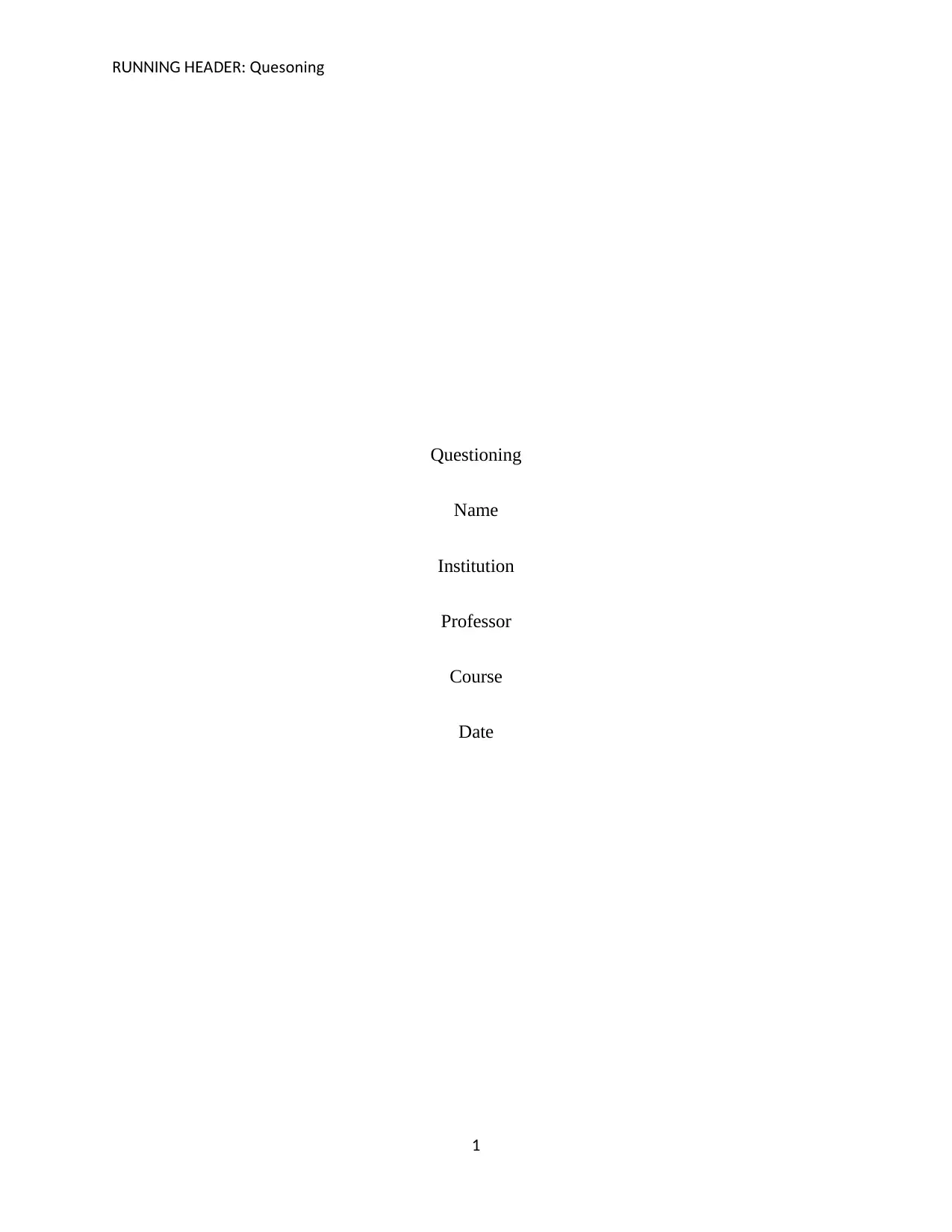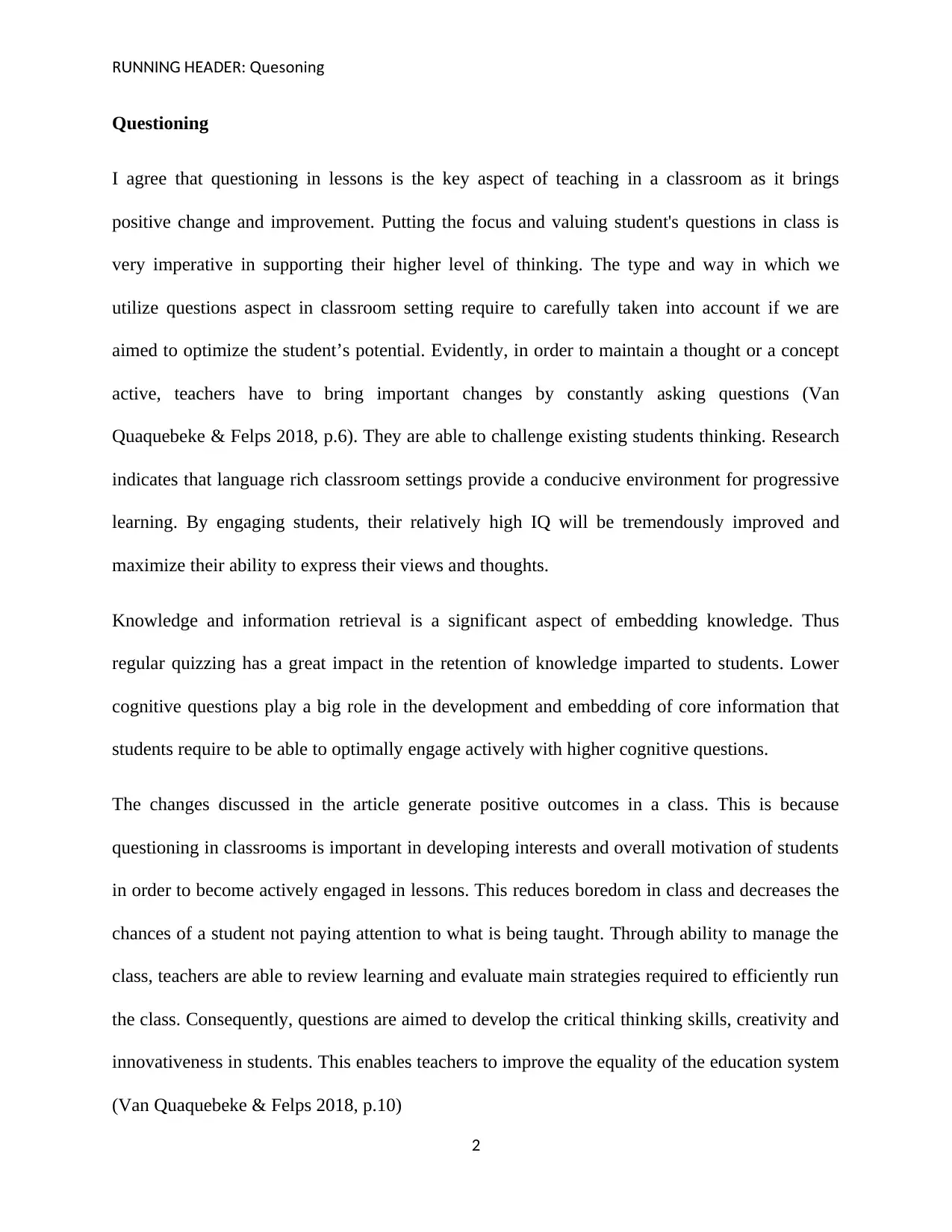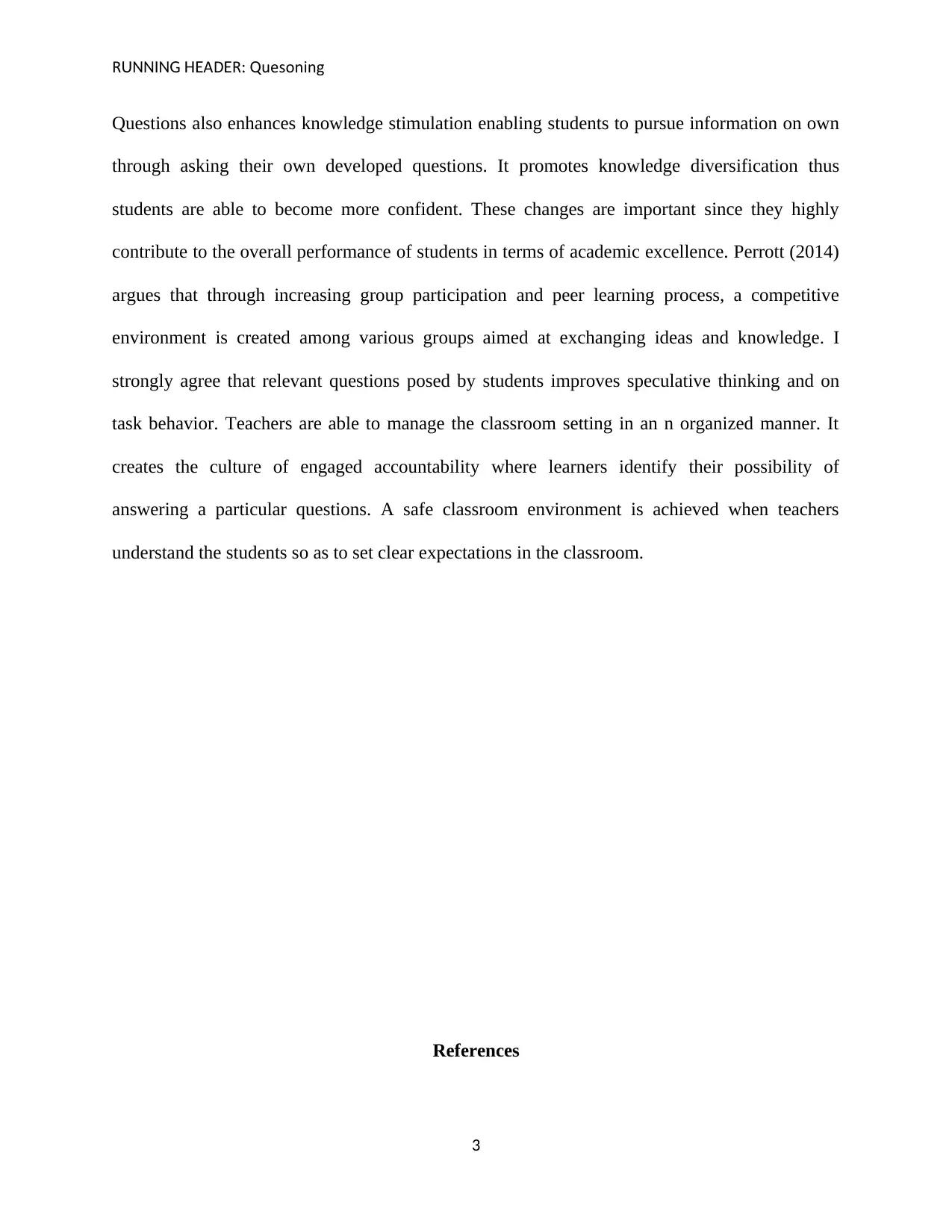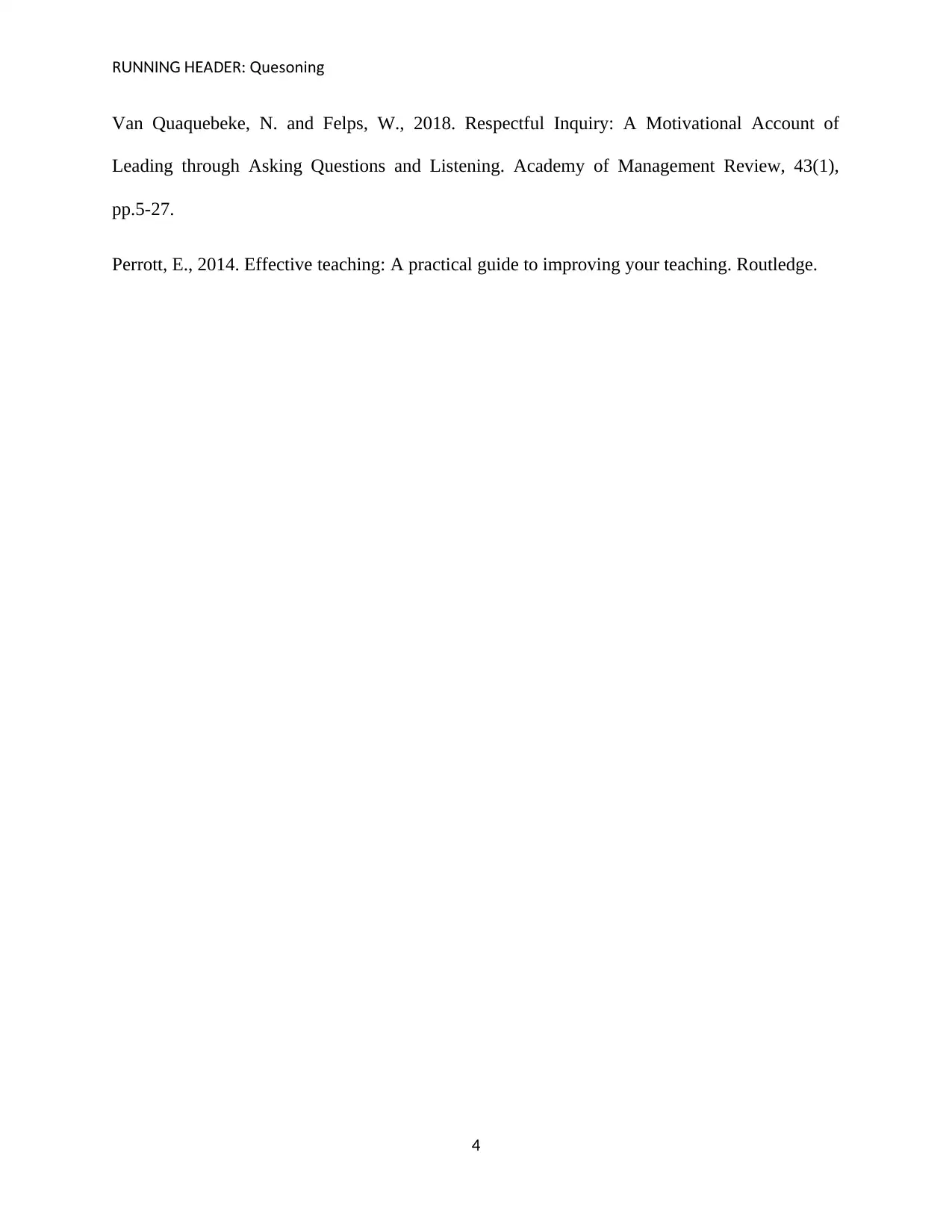The Impact of Questioning on Student Engagement and Critical Thinking
VerifiedAdded on 2023/06/08
|4
|570
|386
Essay
AI Summary
This essay discusses the importance of questioning in classroom settings as a key aspect of teaching that brings positive change and improvement. It emphasizes that valuing student questions supports higher-level thinking and that the type and way questions are utilized should be carefully considered to optimize student potential. The essay highlights that teachers can challenge existing student thinking by constantly asking questions, creating a language-rich environment conducive to progressive learning. Regular quizzing and lower cognitive questions are essential for embedding core information, enabling students to engage with higher cognitive questions. The essay also points out that questioning develops interests, reduces boredom, and helps teachers review learning and evaluate effective strategies, ultimately improving critical thinking skills, creativity, and the overall quality of education. Furthermore, it argues that relevant questions improve speculative thinking and on-task behavior, fostering a culture of engaged accountability and promoting knowledge diversification, thus contributing to academic excellence.
1 out of 4











![[object Object]](/_next/static/media/star-bottom.7253800d.svg)